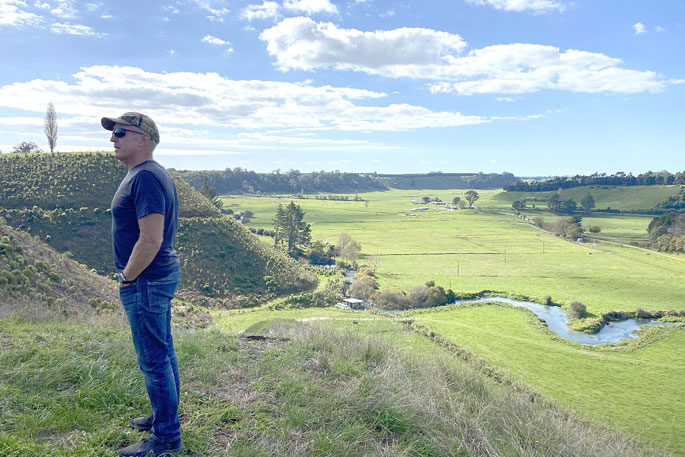The group leading the charge to clean up Te Waihi estuary in the Bay of Plenty will be hosting a farm advisory meeting that will provide a forum for discussion and ideas on how to work together to revitalise the catchment.
Wai Kokopu, made up of tangata whenua, landowners, environmental care groups, Maori agribusiness, residents and ratepayers, is committed to replenishing and revitalising the health of the estuary between Maketu and Pukehina.
The estuary is fed by waterways in sub-catchments that include Pongakawa, Wharere and Kaikokopu.
Project manager for the Wai Kokopu programme Alison Dewes says it is timely to call the meeting to update the agri sector on what's been done since work started six months ago, what comes next, and to also garner ideas for improvement from those active in the sector.
Alison and the Wai Kokopu project team hope as many agribusiness professionals as possible will intend, and that includes vets, fertiliser suppliers and spreaders, farmers, orchardists, foresters, regional farm advisors and consultants.
'We want people to understand how our present and recent activity on the land affects the water. I know some in the sector are already working hard on the land to improve their practices, but we still have a long way to go,” says Alison.
'The state of Te Waihi catchment and estuary is currently one of the worst in Aotearoa New Zealand. The government saw fit to provide restoration funding for the catchment as part of its $20 million investment in catchment restoration projects.”
The Waihi project focuses on environmental initiatives at farm, sub-catchment and catchment levels, from the forests to the sea, with an overarching objective of improving water quality in the Waihi catchment waterways which in turn will contribute towards revitalising the estuary.
Wai Kokopu chairperson and Pongakawa mixed enterprise farmer Andre Hickson says common practice in the sector has been to run profit and output driven systems that have been developed over many years, but that needs to change.
'Now, with an environmental focus we really do need to scrutinise our farm system recipes and the fundamental drivers. In this project we rely on sound local data to guide us, with good science, along with water and soil data informing us,” says Andre.
Alison says water quality is everybody's problem, and by fostering awareness and shared responsibility for the health of Te Waihi estuary, they hope to influence better practices, decisions and outcomes for the land, water, biodiversity and community within the catchment.
'We want to restore the mana back to the whenua, and this will involve a combination of western science and matauranga. By 2024 all farm plans will have to give effect to Te Mana o te Wai, which puts the health of the water and the ecosystem and people first, not last. This is a good first step.”
Part of Alison's brief is to engage with industry, including Zespri and Fonterra, and she's doing that. Wai Kokopu members are already working with a range of farmers from across the catchment on their farm plans, and doing regular soil and water monitoring and data collection. Some of their early findings will be discussed at the May meeting.
The farm advisory meeting takes place at Pongakawa Hall on Wednesday May 19 from 2.30pm to 5.30pm followed by light refreshments.
For more information on Wai Kokopu go to www.wai-kokopu.org.nz and follow them on Facebook



0 comments
Leave a Comment
You must be logged in to make a comment.